World Affair
Eye on strong export advantage, India not keen to dent Turkey trade ties with curbs- The Indian Express
India is reconsidering extending curbs on trade with Turkey—despite national security concerns—due to the significant export advantage and trade surplus it enjoys with Turkey. This comes amid domestic calls to ban Turkish imports like apples and marbles following Turkey’s support for Pakistan.
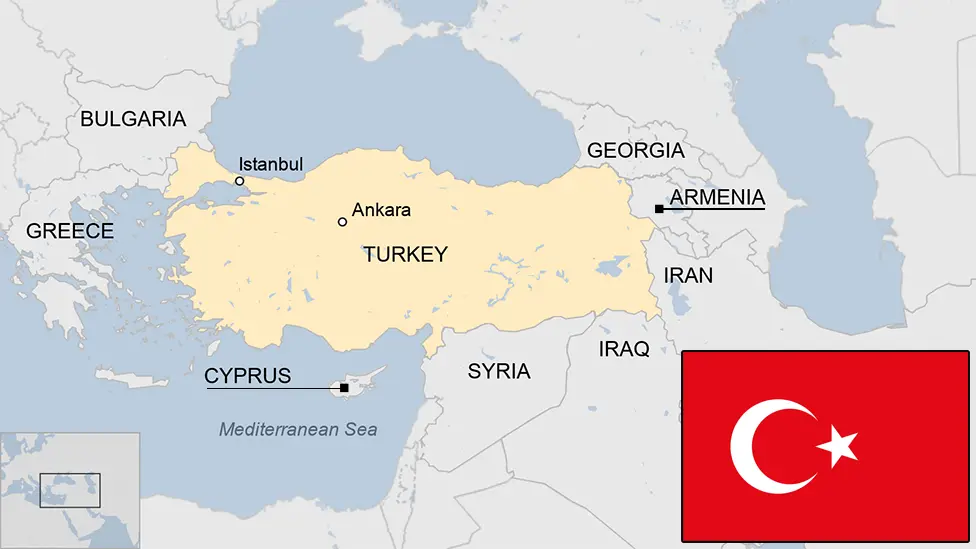
Key Points:
- Security Tensions: Turkey's support for Pakistan, especially during Op Sindoor, led to a security clearance halt for Turkish firms and reduced tourism.
- Trade Relationship:
- India’s exports to Turkey in FY25 totalled $5.72 billion, led by engineering goods, electronics, and chemicals.
- Imports from Turkey stood at $2.99 billion, mainly fruits and marbles.
- Industry Pressure: Indian industry groups pushed for a ban on Turkish imports, including apples from Himachal Pradesh.
- Government Stance:
- India is cautious about imposing broader trade restrictions due to its strong trade surplus.
- Government views trade bans as sensitive and possibly counterproductive.
- Strategic Viewpoint: While national security is a concern, India aims to balance economic interests with diplomatic measures.
Society
Nine years of Pradhan Mantri Surakshit Matritva Abhiyan- PIB
The PMSMA completed nine years since its launch in June 2016.
Pradhan Mantri Surakshit Matritva Abhiyan (PMSMA)
- Launched: In 2016 by the Ministry of Health & Family Welfare (MoHFW).
- Objective: To ensure universal access to free, quality, and assured antenatal care (ANC) for all pregnant women.
- Premise: The initiative is based on the belief that every pregnant woman receiving at least one check-up by a physician under PMSMA can significantly reduce maternal and neonatal mortality.
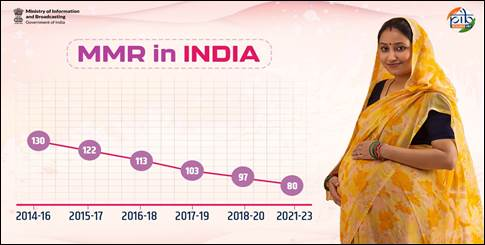
- Service Guarantee: Provides a minimum package of antenatal services to pregnant women in their second and third trimesters.
- Neonatal Death Definition: Refers to the death of a newborn within the first 28 days of life.

PMSMA adopts a focused and systematic strategy to improve maternal health. By ensuring the provision of quality antenatal care (ANC) on a fixed day each month, identifying high-risk pregnancies (HRPs), and enhancing digital tracking through the E-PMSMA platform, the scheme significantly contributes to reducing maternal mortality and ensuring safer pregnancies across the country.
Prime Minister pays tribute to Bhagwan Birsa Munda -PIB
The Prime Minister, Shri Narendra Modi paid tributes to great hero of the freedom struggle, Bhagwan Birsa Munda on the occasion of his Martyr's Day.
About Birsa Munda
Birth: November 15, 1875, in Khunti district, Jharkhand; belonged to the Munda tribe of the Chotanagpur Plateau.
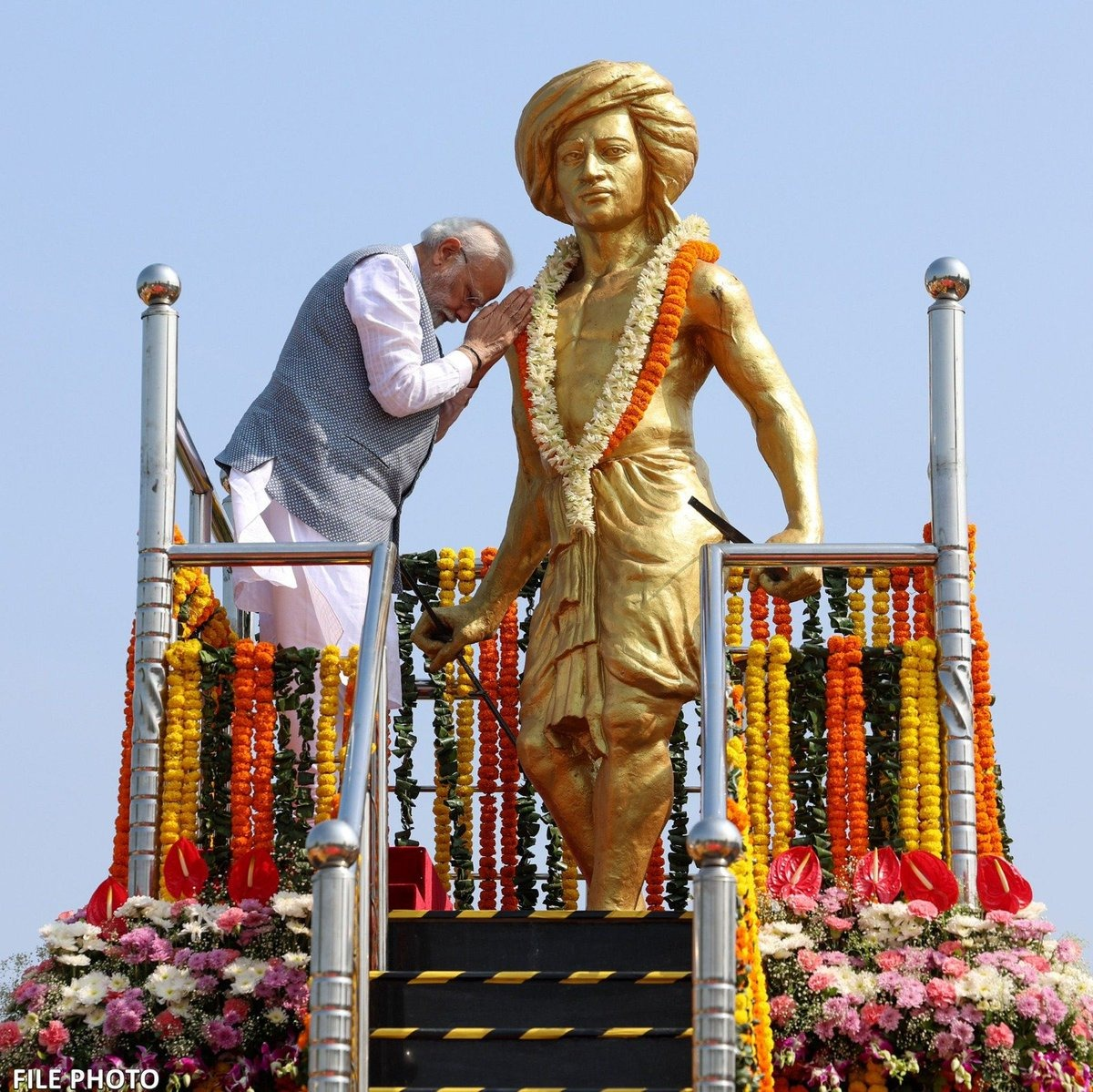
Background: Witnessed tribal exploitation under British colonial rule, especially due to:
- Imposition of Zamindari system, replacing the traditional Khuntkatti system (tribal collective land ownership).
- Introduction of Forest Laws and land dispossession, turning tribals into landless labourers.
Munda Rebellion (Ulgulan) [1899–1900]:
- Led a major tribal uprising against British policies.
- Targeted landlords, Christian missionaries, and colonial symbols through guerrilla warfare.
Vision of Self-Rule:
- Propagated the idea of ‘Munda Raj’ (self-rule by tribals).
- Famous slogan: “Abua raj seter jana, maharani raj tundu jana” ("End the Queen’s rule, establish our own").
Tribal Rights Advocate:
- Fought against land alienation and forced labour.
- Inspired the Chotanagpur Tenancy Act, 1908, which restricted land transfers from tribals to non-tribals.
Religious & Social Reformer:
- Founded the ‘Birsait’ faith – a socio-religious movement urging return to tribal roots, rejection of superstitions.
- Revered as ‘Dharti Aba’ (Father of the Earth).
Economy
What is India’s latest approach to localising EV manufacturing? - The Hindu
The Ministry of Heavy Industries has officially notified the guidelines for the Scheme to Promote Manufacturing of Electric Passenger Cars in India, more than a year after its announcement.
Scheme to Promote Manufacturing of Electric Passenger Cars in India (SPMEPCI)
- Launched by: Ministry of Heavy Industries (MHI)
- Objective: To accelerate domestic manufacturing of electric four-wheelers (e-4Ws) and support India’s long-term goals of achieving net-zero emissions by 2070 and promoting sustainable mobility.
- Eligibility: Applicable to companies or corporate groups with a minimum turnover of ₹10,000 crore from automotive manufacturing and a committed investment of at least ₹3,000 crore in fixed assets.
- India’s Push for EV Manufacturing: The scheme allows limited imports of fully built electric cars at reduced duties, aiming to strengthen clean mobility and industrial competitiveness.
Key Provisions
- Reduced Customs Duty: Import duty on completely built electric vehicles (CBUs) cut from 70–100% to 15%.
- Eligibility Price: Applicable to EVs priced $35,000 or above (approx. ₹29.75 lakh), valid for five years.
- Minimum Investment Requirement: Manufacturers must invest at least ₹4,150 crore in India within three years.
- Domestic Value Addition (DVA):
- At least 25% DVA within 3 years.
- To rise to 50% by the 5th year.
- Import Cap: A maximum of 8,000 EVs per year can be imported under the concessional duty.
- Duty Forgone Limit: Total customs duty foregone capped at ₹6,484 crore over the scheme duration.
- Lower Landing Cost: Estimated landing price of an imported EV under this policy is around ₹36 lakh, making them more affordable than before.
Science and Technology
Meet India’s first gene-edited sheep, born in a Srinagar lab- Indian Express
India's first gene-edited sheep, a Kashmir Merino, has been successfully developed by the Embryo Biotechnology Lab of Sher-e-Kashmir University of Agricultural Sciences and Technology (SKUAST) in Srinagar
About gene-edited sheep Kashmir Merino,
- Kashmir Merino is India’s first gene-edited sheep, developed at SKUAST, Srinagar.
- Led by Prof. Riyaz Ahmad Shah, the breakthrough used CRISPR-Cas9 gene-editing technology.
- The myostatin gene—which restricts muscle growth—was edited to enhance muscle mass.
- Gene-editing resulted in a 30% increase in muscle mass, improving meat productivity.
- The modified sheep shows greater resilience to environmental stress.
- Marks a major advancement in India’s livestock biotechnology and genetic research.
- Aims to promote food security, climate resilience, and higher farm income.
.
About CRISPR-Cas9
CRISPR-Cas9 is a revolutionary genome-editing technology based on a natural bacterial defense mechanism.
"CRISPR" stands for Clustered Regularly Interspaced Short Palindromic Repeats, which are sequences used by bacteria to identify and neutralize viral threats.
This mechanism forms the foundation of the CRISPR-Cas9 system, enabling precise and targeted modifications to DNA.
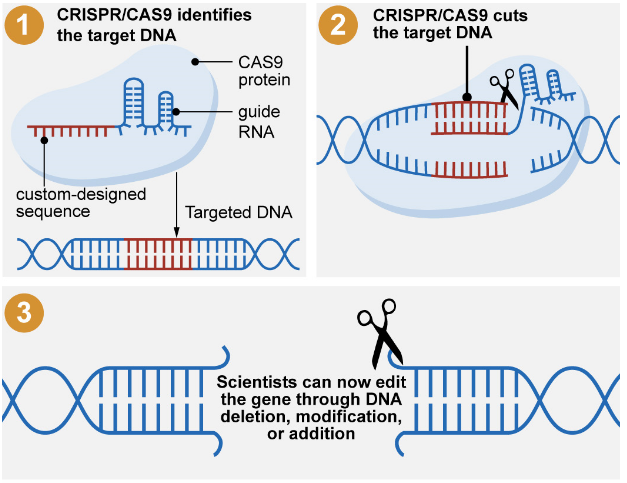
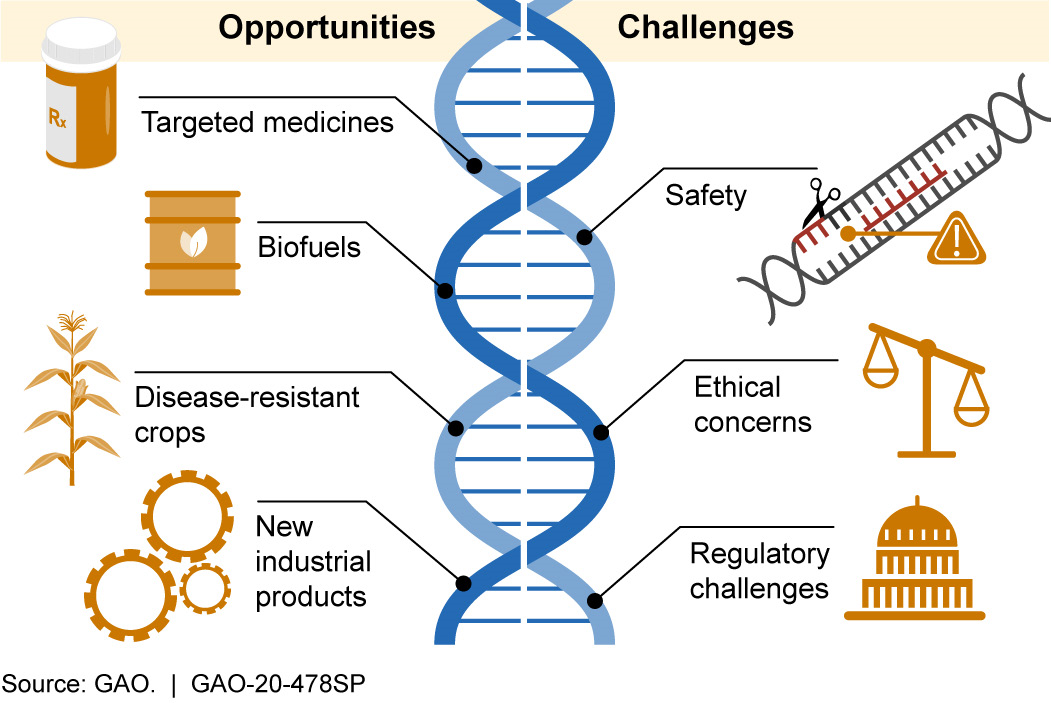
Advantages over Other Genome Editing Tools
- Highly efficient and customizable, CRISPR-Cas9 offers a simpler alternative to older gene-editing technologies.
- Unlike other tools, CRISPR-Cas9 directly cuts DNA strands without requiring additional cleaving enzymes.
- It utilizes a guide RNA (gRNA) sequence to accurately direct the Cas9 enzyme to the target DNA site.
- Thousands of gRNA sequences have already been developed, enabling rapid experimentation and application.
- One key advantage is its ability to target multiple genes at once, offering unmatched versatility in genetic research and biotechnology.